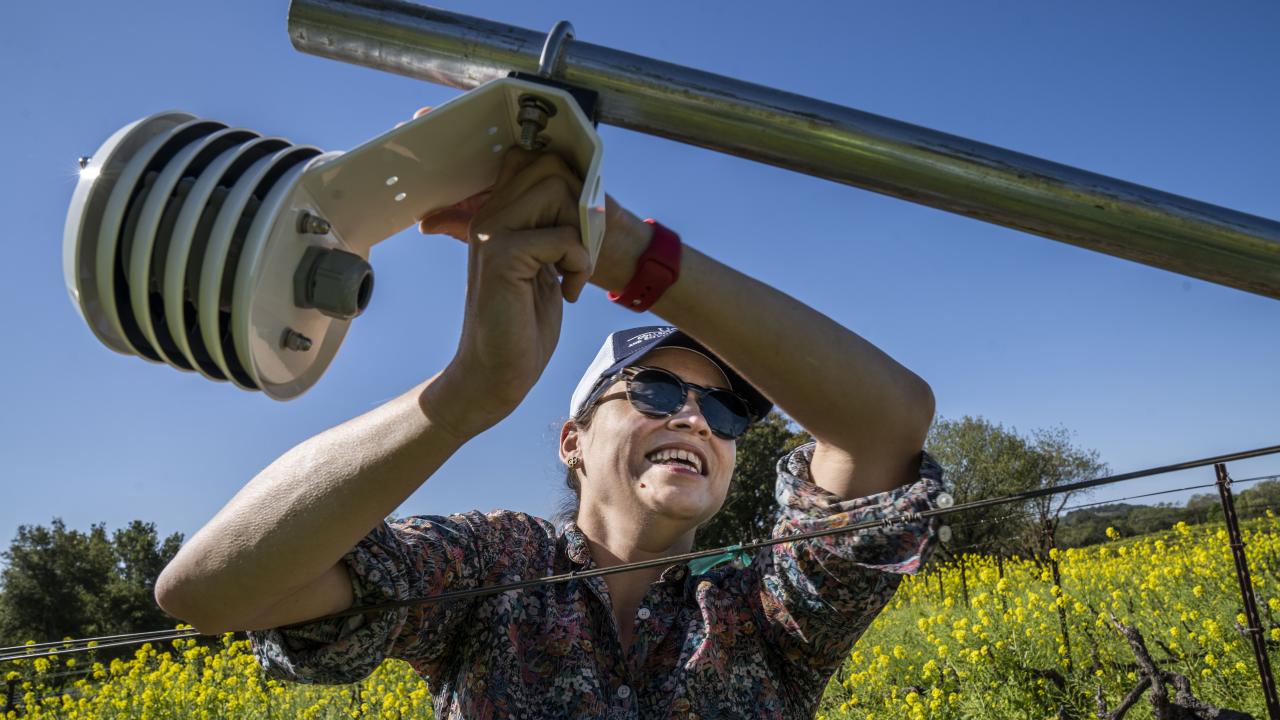
Progress in climate study of wine grapes despite challenges of 2020
Beth Forrestel, an assistant professor and plant biologist in the Department of Viticulture and Enology, leads the project to modernize the Winkler Index that growers used for decades to match suitable wine grape varieties with different regions of the state. Even though smoke, wildfires and pandemic-induced restrictions presented some formidable obstacles to field research in 2020, the initial year of the study, Forrestel reports progress by those involved with the work.
James Campbell, an agricultural chemistry doctoral student in the lab of Professor Andy Waterhouse, led the collection and analysis of berry chemistry in 2015 Cabernet Sauvignon grapes from 74 vineyard blocks from throughout the Napa Valley. He is currently collaborating with the Forrestel lab to find the best predictors of grapevine berry development using information on grapevine water status, irrigation inputs, soils, berry chemistry across the season, meteorological data and viticultural practices. This will help guide site selection and focus sampling for the Winkler study. Campbell and Forrestel will present information to the wine industry and study participants during summer 2021.
While the initial focus is on Cabernet Sauvignon, the most widely grown and economically important wine grape variety in the world, the project is expanding to other cultivars as well. A study at UC Davis is analyzing the biochemistry of wine grape berries in 24 commonly planted varieties across the season and assessing responses to heat extremes.
Additionally, two study blocks, each containing 60 wine grape cultivars, were planted this spring at UC Davis and at the university’s Oakville field station in the Napa Valley. Another block will be planted at a winery in Lodi. These vineyards will be used to compare wine grape performance and to update models of plant development and biochemical responses to heat accumulation. This study is part of an initiative to assess cultivar suitability across regions in California and other international locations, including France and Australia.
A trove of useful information is being gleaned from the thousands of index cards used by Amerine and Winkler to record their observations. Undergraduate student Kayla Elmendorf has been digitizing and recording the cards. The goal is to generate a visual tool depicting California’s early viticultural regions and their movement through time. These cards, as well as other significant historical records and papers, are housed in special collections at the UC Davis Library. Read more here.
A literature review of the Winkler Index documented more than 6,000 references in books, scientific publications and peer-reviewed reports, demonstrating how widely it has been used throughout the world. A review paper, which is a collaborative effort with the Forrestel lab, is currently in preparation for submission to the American Journal of Enology and Viticulture.
Media Resources
Winemaker Warren Winiarski is helping bring new life to landmark UC Davis research
Media contact:
Amy Quinton, News and Media Relations, cell 530-601-8077, amquinton@ucdavis.edu